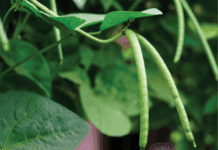SCIENTISTS have sequenced the avocado genome, shedding light on the ancient origins of this buttery fruit and laying the groundwork for future improvements to farming.
With regard to modern affairs, the study reveals for the first time that the popular Hass avocado inherited about 61 percent of its DNA from Mexican varieties and about 39 percent from Guatemalan ones. (Avocados come in many types, but Hass — first planted in the 1920s — comprises the bulk of avocados grown around the world.)
The research also provides vital reference material for learning about the function of individual avocado genes, and for using genetic engineering to boost productivity of avocado trees, improve disease resistance and create fruit with new tastes and textures.
The study is important for agriculture. The growing global market for avocados was worth about $13 billion in 2017, with Mexico, the largest producer, exporting some $2.5 billion worth of the fruit that year, according to Statista, a provider of market and consumer data.
Around the world, avocados are spread on tortillas, mashed up to flavor toast, rolled into sushi and blended into milkshakes (a popular treat in parts of Southeast Asia).
Scientists sequenced not only the Hass avocado, but also avocados from Mexico, Guatemala and the West Indies, which are each home to genetically distinct, native cultivars of the fruit.
The project was led by the National Laboratory of Genomics for Biodiversity (LANGEBIO) in Mexico, Texas Tech University, and the University at Buffalo. The research was published on Aug 6 in the Proceedings of the National Academy of Sciences.

















